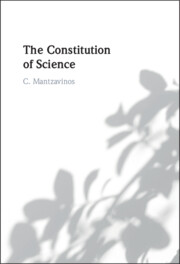Book contents
- The Constitution of Science
- Reviews
- The Constitution of Science
- Copyright page
- Epigraph
- Contents
- Acknowledgements
- Introduction
- 1 The Scaffolds Humans Erect on Science
- 2 Science and Values
- 3 Normativity
- 4 The Informal Institutions of Science
- 5 Core Scientific Activities
- 6 The Formal Institutions of Science
- 7 The Search for an Adequate Constitution
- 8 Five Principles for a Quasi-Autonomous Science
- Epilogue
- Excursus
- Notes
- References
- Index
3 - Normativity
Published online by Cambridge University Press: 05 December 2024
- The Constitution of Science
- Reviews
- The Constitution of Science
- Copyright page
- Epigraph
- Contents
- Acknowledgements
- Introduction
- 1 The Scaffolds Humans Erect on Science
- 2 Science and Values
- 3 Normativity
- 4 The Informal Institutions of Science
- 5 Core Scientific Activities
- 6 The Formal Institutions of Science
- 7 The Search for an Adequate Constitution
- 8 Five Principles for a Quasi-Autonomous Science
- Epilogue
- Excursus
- Notes
- References
- Index
Summary
In the philosophical discussion of the last decades, the position has gained a foothold according to which there is a more or less well-identifiable, partly detached domain of values, which is not necessarily hypostatized, but which supposedly belongs to the furniture of the world. This discussion is commonly conducted using the vocabulary of “moral realism,” and it has in the meantime generated subtly nuanced formulations and argumentations. After an initial phase, the discussion has subsequently centred on the nature of normativity. The subtlety of positions and the ingenuity of argumentations is impressive – expressed in a philosophical style that ceased to be baroque, intended for outdoor use, and has taken up features of rococo, which is at home mainly indoors. This chapter suggests that empirical findings should be taken seriously and develops a novel naturalistic account of normativity informed by the deliverances of the sciences.
- Type
- Chapter
- Information
- The Constitution of Science , pp. 8 - 21Publisher: Cambridge University PressPrint publication year: 2024

